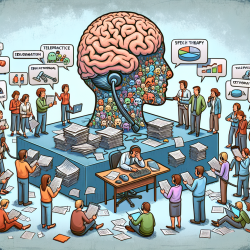Boost Your Leadership Skills with the School Implementation Leadership Scale (SILS)
As a practitioner dedicated to creating great outcomes for children, it's essential to stay updated with the latest research and tools that can enhance your effectiveness. One such tool is the School Implementation Leadership Scale (SILS), a validated instrument designed to measure and improve leadership behaviors in educational settings. This blog will explore how you can leverage the findings from the research article "Leading the charge in the education sector: development and validation of the School Implementation Leadership Scale (SILS)" to boost your leadership skills and improve the implementation of evidence-based practices (EBPs) in schools.
Understanding SILS
The SILS is an adaptation of the Implementation Leadership Scale (ILS) specifically tailored for the education sector. It was developed to address the unique challenges faced by school leaders in implementing mental health prevention programs. The research involved 441 public school teachers from 52 elementary schools across six school districts in the Midwest and West Coast of the USA. The SILS consists of seven subscales, each with three items, focusing on:
- Proactive Leadership
- Knowledgeable Leadership
- Supportive Leadership
- Perseverant Leadership
- Communication
- Vision/Mission
- Availability
The study found that the SILS demonstrated strong structural, convergent, and divergent validity, making it a reliable tool for assessing and improving leadership behaviors related to the implementation of EBPs in schools.
How to Implement SILS Findings in Your Practice
Here are some practical steps you can take to implement the findings from the SILS research in your school or practice:
1. Assess Your Leadership Skills
Use the SILS to evaluate your current leadership behaviors. The seven subscales will provide a comprehensive overview of your strengths and areas for improvement. This self-assessment can serve as a baseline for your development.
2. Focus on Proactive Leadership
Proactive leadership involves anticipating and addressing implementation challenges before they become obstacles. Create a plan to facilitate the implementation of EBPs and establish clear standards and expectations. This will help in removing barriers and ensuring smooth execution.
3. Enhance Your Knowledge
Being knowledgeable about EBPs and implementation issues is crucial. Invest time in learning about the latest research and best practices in your field. This will enable you to answer questions confidently and provide informed guidance to your team.
4. Provide Support
Supportive leadership means recognizing and appreciating the efforts of your staff. Encourage continuous learning and provide resources for professional development. Show your team that you value their contributions and are committed to their growth.
5. Communicate Effectively
Clear communication is the foundation of effective leadership. Establish systems for regular updates and feedback. Encourage open dialogue and make yourself available for discussions about EBP implementation. This will foster a collaborative environment.
6. Align Vision and Mission
Link the implementation of EBPs to your school's broader mission and vision. This alignment will help in creating a shared sense of purpose and motivate your team to work towards common goals.
7. Be Accessible
Availability is a key aspect of leadership. Make sure you are accessible to your staff when they need help with implementation issues. Being responsive to their needs will build trust and encourage them to seek your guidance.
Encouraging Further Research
While the SILS provides a robust framework for improving leadership behaviors, it's essential to stay engaged with ongoing research in this field. Encourage your team to participate in studies and contribute to the growing body of knowledge on implementation science. This will not only enhance your practice but also benefit the broader educational community.
To read the original research paper, please follow this link: Leading the charge in the education sector: development and validation of the School Implementation Leadership Scale (SILS).










